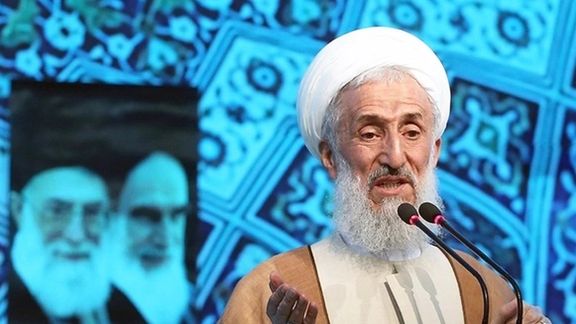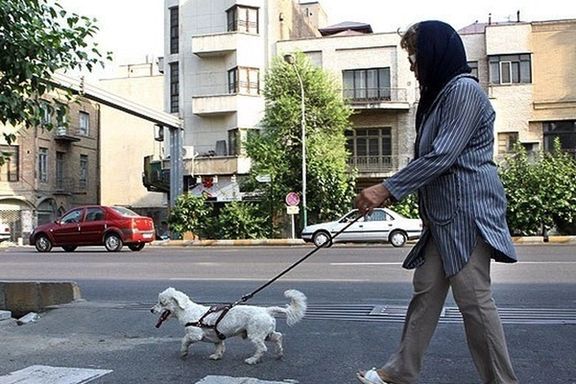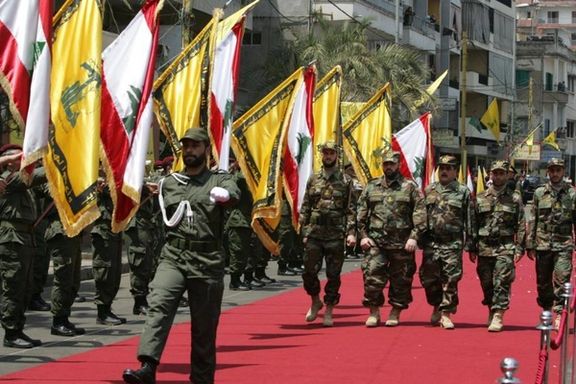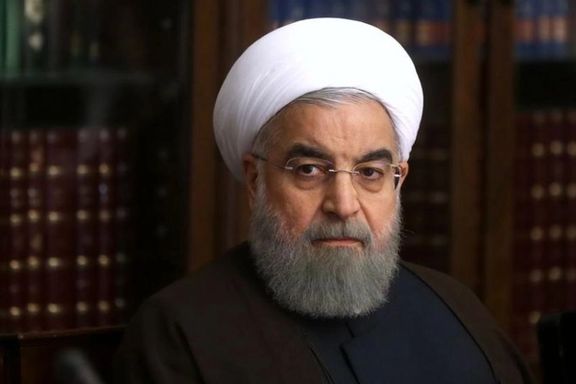Hackers Attack Jerusalem Post, Maariv On Soleimani Anniversary

Iran-affiliated hackers targeted Israeli media outlests early Monday, on the second anniversary of Qasem Soleiman's killing by a US done attack in Baghdad.

Iran-affiliated hackers targeted Israeli media outlests early Monday, on the second anniversary of Qasem Soleiman's killing by a US done attack in Baghdad.
The Jerusalem Post’s website and Maariv’s Twitter account were targeted.
Hackers put a photo of a model of Israel’s Dimona nuclear plant being blown up while a hand is shooting down a missile from an agate stone ring, something Soleimani was known to be wearing all the time.
A threatening sentence attributed to the IRGC Qods (Quds) force commander was also placed on the photo in English and Hebrew that said, “We are close to you where you do not think about it". It is from one of Soleimani’s speeches that addressed former US president Donald Trump about a year before his killing.
According to the Jerusalem Post, it cannot be verified if the source of the cyberattack was from Iran or from outside the country or if they were state sponsored.
In May 2020, hackers replaced the site's homepage with an illustration of Tel Aviv burning as then-Prime-Minister Benjamin Netanyahu was swimming for a life preserver with a text saying, "Be ready for a big surprise."
Iranian officials have often threatened retribution against American and Israeli officials that they have listed as having been involved in ordering, planning and carrying out the drone strike that killed Soleimani.

The United Kingdom Maritime Trade Operations (UKMTO) said late on Sunday it had received reports of an attack on a vessel near Yemen's port of Ras Isa and an investigation was being conducted.
In an advisory issued at 2150 GMT, the UKMTO - part of Britain's Royal Navy - advised mariners to exercise extreme caution in the area.
It put the vessel's position at approximately 23 nautical miles west of Ras Isa oil terminal on the Red Sea.
The last shipping incident near Ras Isa was in late 2019 when Yemen's Iran-aligned Houthi movement briefly seized a Saudi-flagged ship and two South Korean vessels.
Saudi Arabia is leading a military coalition that has been battling the Houthis for more than six years.
The alliance has accused the Houthis of attacking shipping in the Red Sea, one of the world's busiest maritime lanes leading up to the Suez Canal.
Similar incidents have taken place in the Persian Gulf region and the Arabian Sea. Iran has seized several vessels since 2019.

Strong reactions to comments by a cleric in Iran has highlighted the vast gap between the official ideology and the people's notion of a desirable lifestyle.
At the same time, Iranian social media users have been trending the hashtag #LetUsTalk to show their protest to compulsory hijab and religious ideology.
Iranian media on Saturday quoted Tehran's Friday Prayers Imam Kazem Sedighi as having branded family planning and dog walking as examples of "promiscuity and fighting Allah."
The conservative cleric had said in his sermons on Friday, "The three sins of demanding interest on loans, creating insecurity, and loosening the foundations of the institution of family are prevalent in our society. These are tantamount to fighting Allah." He added that "Loosening the foundations of family leads to indecent behavior and debauchery, the examples of which are not observing the Islamic hijab, walking dogs, and avoiding having children."

Reformist activist Mostafa Tajzadeh reacted to Sedighi's remark in a tweet: "Anyone who knows Sedighi will not be surprised by his comment about family planning being an example of indecent behavior and debauchery. But why should such a person be appointed as Tehran's Friday Prayer leader…? Don't they see that people are throwing away clerics' turbans off their heads?"
Tajzadeh was alluding to a recent incident when a woman stepped on a cleric's turban after he insulted her and beat her with a stick for not wearing the right Islamic hijab. The video of the incident that went viral on social media.
In comments under a report about Sedighi's remarks, one of the readers of proreform Fararu website wrote:"I agree with you on walking the dog, but bringing up children needs money, which we do not have."
Another reader said: "Just remember that Sedighi is the same man who said a dead body in the morgue looked at him and laughed. Giving a man like this a status such as a Friday Prayers Imam is an insult to religion."
Yet another user replied: "People cannot have children because they have financial problems. You have created these problems. And people probably keep dogs as pets only to show their disapproval and hatred of the [Islamic Republic] government."
Meanwhile, trending the hashtag #LetUsTalk, hundreds of Iranian social media users protested to compulsory hijab and the ideology the government is imposing on them. Many responded to Iranian activist Massih Alinejad's call for posting their picture in hijab next to a picture in their usual outfit.Alinejad has initiated the hashtag by posting two of her own pictures.
She wrote in a tweet: "They told us in Iran that we would be subjected to lashes and imprisonment if we do not wear the hijab, and in the West, when we want to talk about it, they tell us to keep silent as this might be an example of Islamophobia." She told other Iranian women, "Do not remain silent. We have a right to be scared of the Islamists' ideology."
An Iranian woman posted a picture of her childhood in hijab and wrote: "This sad little girl is not the real me. She is what the Islamic Republic wants little girls to be. Another Iranian woman, Azam Bahrami, wrote: "I was punished several times for taking a book with me to the school or for singing a song to my classmates or for the color of my socks or shoes. "
Another woman using the hashtag #LetUsTalk, wrote: "Hijab is not my choice. Nor it is the choice of hundreds of thousands of other Iranian women." Another woman said: "We have been lashed and our human dignity has been undermined for walking hand in hand with someone we love, for being happy, for singing. So, #LetUsTalk about it."

An official of Iran’s drug importers union says official claims of self-sufficiency in production of raw materials for medicine and pharmaceutical products is not true.
In an interview with Iran’s labor news agency on Sunday, the deputy head of the Iranian Pharmaceutical Importers Association, Mojtaba Bourbour, said about 80 to 90 percent of the needed raw materials are imported from China and India. He added that some medicines are imported from China but sold as made in Iran.
Noting that there is no precise data on the amount of the imports of drugs packaged abroad, Bourbour said that unofficial figures indicate a $400 million dollar decrease to about $700 million since last year.
He added that most of Iran’s imports of packaged medicines are from the United States and European countries, followed by India and Turkey.
He also criticized the government’s policies that led to the decrease in imports, warning that medication prices may rise dramatically in the coming months as a result ofrestrictions by the health ministry and not foreign sanctions.
Also on Sunday, Iran’s Health Minister Bahram Eynollahi talked of further restrictions on imports of medicine and pharmaceutical products, while the Food and Drug Administration announced a ban on the imports of COVID-19 vaccines.
Eynollahi urged people to trust drugs made in Iran and warned Iranian doctors against prescribing foreign brands of medicine.

Iran’s Revolutionary Guard and Lebanon’s Hezbollah have reportedly started construction work to expand two old military bases near the Syrian capital Damascus.
According to a report by the Syrian Observatory for Human Rights (SOHR) on Sunday, they are turning the compounds into training and operations centers with underground facilities to store drones and weapons.
The report said that Hezbollah forces have driven out farmers from the nearby village of Khirbet al-Ward to prevent filming of their activities in and around an old military base, which is located near the town of Sayyidah Zaynab south of Damascus.
Construction work with excavators has also started around the Dimas airbase, west of the capital, the report added, claiming that shipments of weapons and drones will be concealed in basements there, probably replacing the Tiyas Military Airbase in the Homs area that was reportedly targeted by Israeli airstrikes.
SOHR added that shipments of weapons and ammunition as well as parts to assemble drones have been delivered to the military airbase in Dimas, which is now under almost full control of the IRGC and Iran-backed militias.
Israeli warplanes have fired missiles at the port in the coastal city of Latakia, twice in less than a month causing destroying “a large number of containers,” of weapons shipped from Iran.
Israel conducts attacks at Iranian supplies headed for the Lebanese Hezbollah and other proxy forces.

The son-in-law of Iran’s former president has said that a recent meeting between Hassan Rouhani and Iran’s leader Ali Khamenei was “normal and intimate”, rejecting rumors to the contrary.
In an interview with Sharq newspaper published on Sunday, Kambiz Mehdizadeh made the comments in reaction to numerous reports about the content and tone of the meeting, Rouhani’s first since his term ended in early August.
News of the meeting that was disclosed by Mohammad Mohajeri, an editorial-board member of Khabar Online website, sparking a lot of speculations and interpretations on the Iranian political scene.
Some sources said that during the meeting Rouhani warned the Supreme Leader over the perils of delaying a nuclear deal with the West and urged establishing relations with the United States before Iran’s economic crisis endangers the regime.
The rumors that Mehdizadeh was rejecting were about remarks by Iranian conservative political analyst Abbas Salimi Namin, who reportedly said Rouhani had asked Khamenei to appoint him as a member of the Expediency Discernment Council, but the leader rejected it.
The Council was originally set up to resolve differences or conflicts between the parliament and the Guardian Council, but it is primarily an important advisory body with some supervisory powers whose members are chosen by Khamenei every five years.